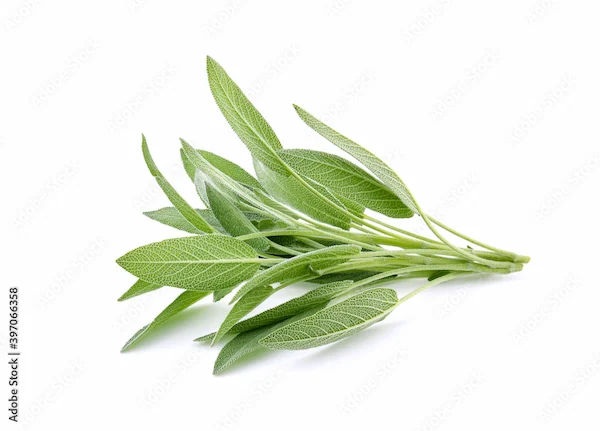Heel Pain Reasons and Solutions
Struggling with heel pain? Learn common causes like plantar fasciitis, effective home remedies, and when to see a doctor. Find relief and walk pain-free.

Written by Dr. Shaik Abdul Kalam
Reviewed by Dr. Mohammed Kamran MBBS, FIDM
Last updated on 5th Aug, 2025
.webp?tr=q-80,f-webp,w-350,dpr-2,c-at_max 700w)
Introduction
Heel pain is a common problem that affects many people at some point in their lives. Whether you're an athlete, someone who stands for long hours, or just dealing with aging, heel pain can make everyday activities uncomfortable. The good news is that most cases of heel pain can be managed with simple treatments and lifestyle changes.
In this article, we’ll explore the common causes of heel pain, how it affects your health, and what you can do to find relief.
What Causes Heel Pain?
Heel pain can arise from different conditions, but the most common causes include:
1. Plantar Fasciitis
This is the leading cause of heel pain. The plantar fascia is a thick band of tissue that runs along the bottom of your foot, connecting your heel to your toes. When this tissue becomes inflamed (often due to overuse, poor footwear, or excessive strain), it causes sharp pain in the heel, especially in the morning.
2. Heel Spurs
A heel spur is a bony growth that forms on the heel bone due to long-term strain on the foot muscles and ligaments. While not always painful, they can contribute to discomfort when walking or standing.
3. Achilles Tendinitis
The Achilles tendon connects your calf muscles to your heel. Overuse (such as from running or jumping) can lead to inflammation, causing pain at the back of the heel.
4. Bursitis
Bursae are small fluid-filled sacs that cushion joints. Inflammation of the bursa near the heel (retrocalcaneal bursitis) can cause pain, especially when wearing tight shoes.
5. Stress Fractures
Repetitive stress or sudden impact (common in athletes) can cause tiny cracks in the heel bone, leading to persistent pain.
6. Poor Footwear or Overuse
Wearing unsupportive shoes, standing for long hours, or sudden increases in physical activity can strain the heel.
Symptoms of Heel Pain
Depending on the cause, heel pain may present as:
- Sharp or stabbing pain (common in plantar fasciitis)
- Dull ache or throbbing (seen in stress fractures)
- Pain that worsens after rest (morning stiffness)
- Swelling or redness around the heel
- Difficulty walking or standing for long periods
If your pain is severe, persistent, or accompanied by swelling, numbness, or fever, consult a doctor immediately.
Consult Top Specialists for Personalised Tips
How to Manage Heel Pain at Home
Most heel pain improves with simple home remedies and lifestyle changes. Here’s what you can do:
1. Rest and Ice
- Avoid activities that worsen the pain.
- Apply ice for 15-20 minutes, 3-4 times a day, to reduce inflammation.
2. Stretching Exercises
Stretching the calf muscles and plantar fascia can help relieve tension. Try:
- Calf Stretch: Lean against a wall with one leg straight and the other bent. Hold for 30 seconds.
- Towel Stretch: Sit with legs straight, loop a towel around your foot, and gently pull toward you.
3. Wear Supportive Shoes
- Choose shoes with good arch support and cushioning.
- Avoid flat shoes or high heels for long periods.
- Consider orthotic inserts if needed.
4. Maintain a Healthy Weight
Excess weight puts extra pressure on your feet, increasing heel pain. A balanced diet and regular exercise can help.
5. Over-the-Counter Pain Relief
NSAIDs (like ibuprofen) can reduce pain and swelling—use as directed by a doctor.
When to See a Doctor
If home treatments don’t help within a few weeks, or if you experience:
- Severe pain that doesn’t improve
- Numbness or tingling
- Difficulty walking
- Signs of infection (redness, warmth, fever)
It’s time to consult a specialist. A doctor may recommend:
- Physical therapy for strengthening exercises
- Custom orthotics for better foot support
- Steroid injections for severe inflammation
- Shockwave therapy or surgery (in rare cases)
Preventing Heel Pain
To keep heel pain from returning:
Wear proper footwear (avoid worn-out shoes).
Warm up before exercise and stretch afterward.
Gradually increase activity levels to avoid overuse injuries.
Maintain a healthy weight to reduce foot strain.
Need Expert Help?
If heel pain is affecting your daily life, don’t ignore it. Apollo 24|7 offers expert consultations and diagnostic tests to help you get back on your feet pain-free.
Conclusion
Heel pain is common but manageable. With the right care, rest, stretching, proper footwear, and medical advice when needed, you can walk comfortably again. Listen to your body, and don’t hesitate to seek help if the pain persists.
Consult Top Specialists
Consult Top Specialists for Personalised Tips

Dr Suseela
General Physician
5 Years • MBBS
Bengaluru
Apollo Medical Center, Marathahalli, Bengaluru

Dr. Suvadeep Sen
Critical Care Specialist
12 Years • MBBS, MD, FNB (CRITICAL CARE MEDICINE), EDIC
Mumbai
Apollo Hospitals CBD Belapur, Mumbai

Dr. Bulbul Biswas
General Practitioner
35 Years • MBBS, Diploma in Maternity and child welfare
Kolkata
HERSTEL CARE CLINIC, Kolkata

Dr. Avinash Pasuparthy
General Practitioner
5 Years • MBBS
Visakhapatnam
Apollo Clinic Vizag, Visakhapatnam
Dr. Rijesh Kumar
General Practitioner
14 Years • MBBS
Chennai
Hycare Super Speciality Hospitals, Chennai
Consult Top Specialists

Dr Suseela
General Physician
5 Years • MBBS
Bengaluru
Apollo Medical Center, Marathahalli, Bengaluru

Dr. Suvadeep Sen
Critical Care Specialist
12 Years • MBBS, MD, FNB (CRITICAL CARE MEDICINE), EDIC
Mumbai
Apollo Hospitals CBD Belapur, Mumbai

Dr. Bulbul Biswas
General Practitioner
35 Years • MBBS, Diploma in Maternity and child welfare
Kolkata
HERSTEL CARE CLINIC, Kolkata

Dr. Avinash Pasuparthy
General Practitioner
5 Years • MBBS
Visakhapatnam
Apollo Clinic Vizag, Visakhapatnam
Dr. Rijesh Kumar
General Practitioner
14 Years • MBBS
Chennai
Hycare Super Speciality Hospitals, Chennai




